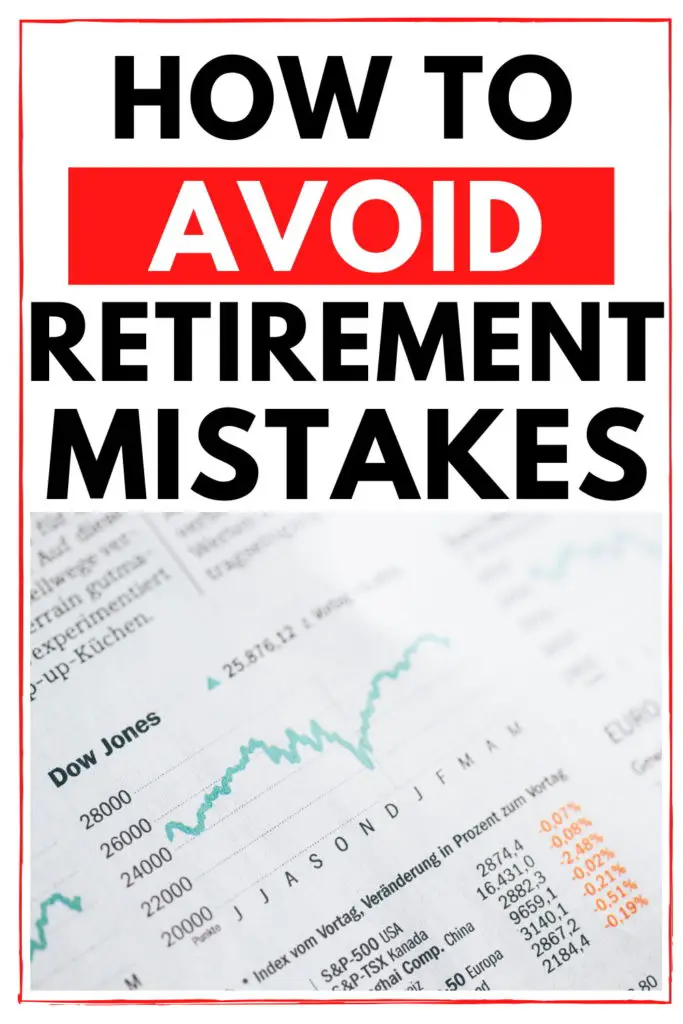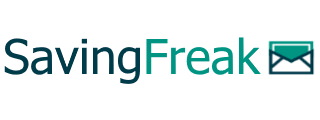Whether you are just entering the work force and retirement feels like a lifetime away, are a few years from retirement age, or are entering retirement soon, we all need to be actively planning for retirement.

This means not only do we need to be actively involved in our retirement planning, but we also need to be seeking out new knowledge in how to handle our investments. Use these tips as a starting point to making sure you are happy with yourself when you reach retirement.
Top Retirement Tips
Start TODAY!!
When investing for retirement the most important thing you can do is start right now. Whether you are in your teens or 60’s, if you do not get started you will never finish. The other reason to get started today is that your money is not earning any interest and if it is not earning interest it is actually losing value as a result of inflation.
Do an Assessment of Where You are
Before making any big retirement decisions—investing in a new product, planning to retire, or signing up for Medicare—you need to do an initial assessment, preferably with the assistance of a retirement advisor if you have substantial assets. Getting a retirement plan in place can help you ensure you’re steadily progressing toward your goals, with as little stress as possible.
Once you have your initial plan in place, consider doing an annual reappraisal. Make tweaks as necessary based on the market and your personal financial circumstances.
Contribute to Your Employer Plan with a Match First
Many employers offer a tax deferred retirement plan for employees. This can come in the form of a 401k, 403b, Simple IRA, and a few other less used options.
If your employer will match the fund you put into your retirement account then take whatever matching funds they will give you. Many people think of this as “free money”, but what it really is, is part of your compensation package.
Unless you are using the income you are investing to pay off debt VERY quickly, you are giving part of your compensation back to your employer.
Automate Your Savings
One of the great things about an employer plan is that the money comes out of your paycheck automatically, without you feeling it. One easy way to keep that automatic savings getting stronger over time is to increase your withholding every time you get a raise.
For example, let’s say your employer gives you a 2% raise every year. Instead of pocketing the entire 2%, add an additional 1% to your retirement withholding. This way, you never feel the extra money leaving your paycheck because it coincided with a pay raise.
Start a Roth IRA
I love the Roth IRA. This is especially true if you are at a point in life where you are paying very little income tax.
The money you put into a Roth has already been taxed. Because you have already paid the taxes, when you withdraw funds at retirement you do not have to pay any taxes on the money you withdraw.
If you have children, you can provide them an amazing blessing by helping them open a Roth IRA as soon as they have taxable income. This will give them an entire lifetime of tax free retirement savings.
Set Goals – And DO NOT Make Them Small
When it comes to your retirement you want to make your goals bigger than you think you will need. That way if you come a little short you are still going to be in great shape for your retirement years.
My family looks to have a minimum of $6,000,000 in net assets at retirement. This would include retirement accounts, investment real estate, and small business assets.
If we fail and only get half that we are still going to be in a very good position to not outlive our money.
Retirement Tips for Boosting Your Savings
I don’t think I have ever met a person that was completely satisfied with how much they were putting away for retirement. These retirement tips will help you boost your saving numbers.
Get Your Spending Under Control
If we are overspending on a regular basis, then there is less to put into our long term retirement savings.
Make sure you are putting together a monthly budget and maximizing your dollars by trending toward the frugal side of life. If only there were a website that discusses how to save money on every day purchases…
Pick up a Side Hustle or Start a Small business
You may not be at a phase in life where this is possible, but most people can find ways to generate a little side income.
This could be as simple as becoming and Uber driver or selling items that you enjoy making. If you are able to focus your side hustle on something you are passionate about you may even be able to convert your side job into a full-time occupation or larger.

Whatever route you choose, make sure to not blow all that money on stuff and direct it toward your retirement savings.
If you do start a small business and it takes off, you will want to direct a large portion of your earnings toward growing the business which is another form of retirement savings.
Tips for Those Approaching Retirement
When I think of those approaching retirement I think of people who have hit the half century mark. This is because, as an American, you are only about 15 years away from typical retirement age.
GET OUT OF DEBT!!
Anyone who enters retirement with zero debt is going to have a much easier time with their finances. When I say zero debt I mean paying off everything including the mortgage.
If you do not believe me, go look at your budget and get rid of any debt payments. Then look at how much it would cost for you to just live (food, insurance, gas, etc.). You are going to find that the number is pretty dang low.
If you have a low cost of living number when you enter retirement then you will maximize your retirement savings.
Take advantage of Catch Up Payments
Most tax advantaged retirement accounts have some form of catch up payments that you can take advantage of once you hit age 50.
When you have a either an IRA or Roth IRA account you can contribute an additional $1,000 a year over the standard contribution. If you are contributing to a 401K, you can add $6,000 more per year in catch-up contributions.
This is a great opportunity to make up for years when maybe you didn’t have enough money to do full contributions.
Plan for Rising Interest Rates
Interest rates will likely rise this year. That means your debt may grow more rapidly, but so too will your investments.
Capitalize on this trend by paying off as much debt as you can. Then put the monthly payments that once went to fund this debt toward your investments.
Your money will grow more quickly, and you’ll be less encumbered by the prospect of owing someone else money.
Don’t Rely Too Heavily on the Stock Market
You already know you need to diversify your investments, but here’s an important reminder: the stock market might be rising today, but it never rises in perpetuity.
Don’t allow yourself to get too excited about rising stock prices, since today’s wise investments could be tomorrow’s costly lessons.
Some of your investments should be in cash properties, such as money market accounts or CDs.
Your financial adviser can help you determine the right balance, but the more diverse your investment portfolio, the fewer opportunities there are for major changes in the market to trigger financial ruin.
Plan for Changing Housing Markets
The housing market is growing yet again, with sellers earning tidy profits on their home investments. For most people their home is their single most significant asset.
It can also serve as an emergency source of cash. Reverse mortgages are available to seniors over 62 who own their homes. You don’t have to repay the loan as long as you remain in the home, so ensuring the value of your home investment remains up is key.
This is one more area where being out of debt is a real benefit to your finances. If you have your house paid off and are looking to downsize, you can wait till the market is at its peak.
With no debt you will not be forced to sell during a low point in the market and hurt your long term finances.
Tips for Once You Reach Retirement Age
As a country we spend hours and hours of time writing and talking about how to save for retirement. What we do not do is give people a clear guide with what steps to take
While this list is by no means comprehensive, these tips will give you a good start on making sure you do not wreck your finances as you enter a stage where you REALLY need to be careful with them.
Sign up for Medicare
Signing up for Medicare late could mean higher premiums for the remainder of your retirement. Recipients who receive Social Security are already enrolled when they turn 65.
If you haven’t yet claimed Social Security, however, you’ll need to independently enroll in Medicare. To get the lowest premium, sign up during the initial enrollment period surrounding your 65th birthday.
If you miss that deadline, you can enroll the following year, between January and March. Enrolling now can save you costly premiums tomorrow, and will also mean fewer medical expenses—a major cost driver in retirement.
Get a Medicare Supplement/Medicare Advantage Plan
Medicare has nine different gaps in coverage that are meant to keep costs down. These gaps can be filled by purchasing a supplement or going with a Medicare Advantage plan.
Medicare supplements work directly with Medicare and will cover anywhere from four to all nine of the Medicare gaps. In most states there are 10 plans available. The most popular is plan F which covers all nine of the gaps, offering comprehensive coverage with no additional costs out of pocket.
Medicare Advantage plans are private insurance policies that replace standard Medicare coverage. These plans can be customized more to individual needs and may be tailored to cover specific doctors and medical providers in a person’s area.
Maximize your Social Security Income
Social Security makes up a major part of most people’s retirement planning. The question that those getting close to or are entering retirement need to know is when they should start collecting Social Security to maximize their benefit from the program.
You can do this by consulting with a retirement advisor or talking directly to the Social Security Administration.
Hold off Taking Money Out of Your Cash Investments as much as Possible
My parents are both retired and have set up with income that comes from Social Security and a Pension plan. Because they retired with no debt, these two sources of income cover all of their regular monthly expenses. This means that their cash savings can be dedicated to major purchases and special travel.
Whenever you can avoid drawing down your cash value investments, it will lengthen how long your investments will last you and will increase the legacy you leave to your heirs.
Find a Side Income
If you are not retiring with business or real estate income, a great way to extend your retirement savings is to get a side income. Not only do you get the added financial benefit, studies have shown that people who delay full retirement also live longer.
The limit for 2017 you can earn up to $16,920 on the year ($1,4110/month) without losing any of your Social Security benefit. Any two dollars you make over that number you will lose $1 of Social Security income.
In the good ole days this meant picking up a part-time job, and that is still a good way to go. With the Internet it is easier than ever to pick up part-time income without having to punch a time clock and answer to a boss. Check out my article that details plenty of part-time jobs for retirees.


Leave a Reply